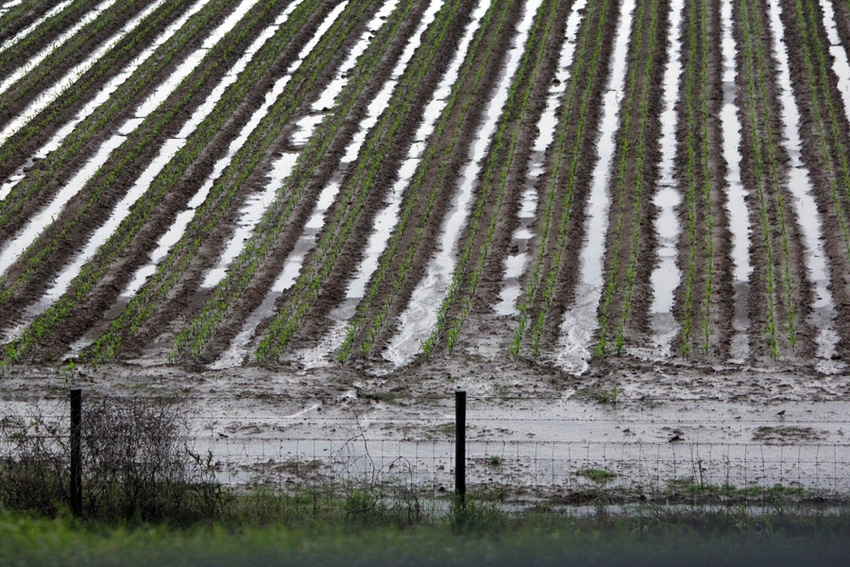May 3, 2011

We are truly blessed that some people are willing and even like to farm. I love working with and advising farmers, but I would not have the fortitude to do so myself. When you think things cannot get any worse, we get more rain and more flooding.
I do not know what to say, and there is nothing I can do, but my hat is off to anyone that farms. As upset as I get just writing about weather problems, I cannot imagine what it is like seeing your own crop under water or wondering when or if you will get to plant.
The only encouragement I can offer is we always manage to get a crop in and often it turns out better than we think.
Timing is everything. As I was writing this gloom and doom, I just received a call from a farmer whose farm is several feet under water. They have already lost several hundred acres of corn and had another 60 go under last night. He was totally upbeat asking for several recommendations on what to do when the water recedes.
I finally asked him how he could be so upbeat with everything he had just told me. Of course, there is a liquor store within a mile of their shop! Seriously, he simply said, “We have been through this before and if you cannot stay upbeat you cannot do this for a living.”
That pretty well describes farmers, and that is why I love working with them. I still do not know how you do it. I have chuckled through the years when I have heard speakers at grower meetings saying, “If I was a farmer I would do this or that.” I am thinking, “Man, if you were a farmer you do not have a clue what you would do!”
I have already received a couple of calls regarding corn injury from Prefix/Flexstar carryover. We have said before and will say again: this is not “just a label thing.” If you exceed the labeled usage of these herbicides, carryover can occur in rotated crops.
In LibertyLink soybeans, Prefix is an excellent choice as a pre-emergence treatment because you will not be following with any Flexstar. However, in Roundup Ready and conventional soybeans, I agree with the University of Arkansas weed scientists that there are better choices than Prefix so that you do not get boxed in on Flexstar use later.
I have also had questions regarding planting soybeans where a corn crop has been lost to flooding and atrazine was used. Everyone wants to be told to go ahead, that there are no issues and no injury will occur. Nobody can come out and say that with complete certainty. That is a grower’s risk situation, but atrazine does not hang around long in the soil under flooded conditions.
From a soybean injury situation, by the time the fields have been under water and then dry out sufficiently to plant, normally they will make it fine. There is always the issue of atrazine not being labeled as a soybean herbicide. I am in no position to give advice on this issue. From a practical standpoint, if the soybeans grow, there is no atrazine there.
I have received a couple of calls on injury to soybeans from pre-emergence applications of herbicides containing Valor. Under certain conditions, usually rainfall at emergence, that is going to happen. I recommend these products enthusiastically prior to planting, but not at planting. I like getting them out 10 to 14 days prior to planting and hopefully getting a rain before planting. In this scenario you are planting into an activated treatment and you also greatly reduce the injury risk.
On the brighter side, when injury occurs from a pre-emergence application, the soybeans usually recover. I just prefer to let others make that recommendation.
It will dry out and when it does, the weeds will grow! The book has been thrown out. Things are going to get exciting in a hurry. Call if I can help and call back if I have not returned your call in short order. Sometimes I miss getting a call returned when they are coming rapidly, but it is never intentional.
About the Author(s)
You May Also Like




